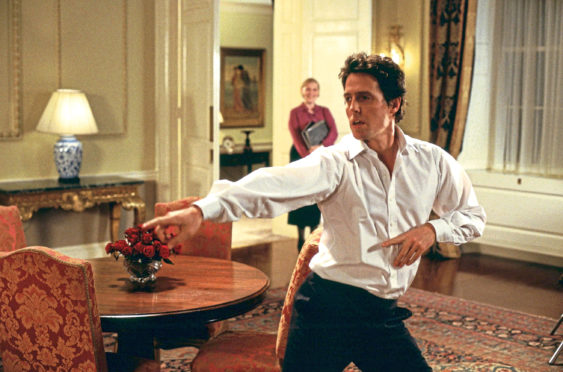Dickens ruined Christmas for writers. He invented the sentimental form of the holiday, a schmaltz-fest for the crippled Tiny Tim.
On this eve, what to write about but Christmas? It lures you in, like a shopfront of magic, only to reward you with cliche. Still, here goes.
This Christmas is different. We will gather in small bubbles, a bit larger than fizz, and eat what has not rotted in Dover.
There will be no sleeping bag in the lounge, as everyone’s out before midnight, no pints in the inn, nor any hair of the dog on Boxing Day. Just one day to celebrate.
We are allowed to go to church, just in ever decreasing numbers – 50 is reducing to 20 from Boxing Day. You can worship online, but that doesn’t have the catwalk buzz of turning up.
It’s not as if every day since March hadn’t been a bit like Christmas. An orgy of TV while you turn the sofa into a crib of soft fabrics. In the kitchen, no rules apply. Booze for breakfast, chocolate for lunch. Yet this will still seem special.
We will all give thanks.
If we were a Christian society, it would make sense that the 25th is when we change the rules. But we are not. Attendance at Protestant and Catholic churches is at an all-time low. Opinion polls suggest we have a sentimental sense of Christianity – far more of us are inclined to say we believe than those who actually do something about it. Christianity in Scotland is a bit like football post-satellite TV – many are fans at home, but few turn up for the game.
If we were a society with religion enshrined in the constitution, that might explain the specialness of tomorrow, but we are not. We don’t even have the head of state involved in the church. Scotland is secular in law and government.
Perhaps it’s obvious that Christmas is the chosen day because of tradition, yet in living memory it wasn’t even a full public holiday. It only won that status in Scotland in 1958.
Bound up with religious divides between claimants to the throne, Christmas was never a priority.
Some of this is about hostility to Catholicism and some sexism. Protestant faiths have historically mistrusted the cult of the Virgin Mary. All a bit too fanciful for cold heads.
Then there is the business of the trinity, the divinity of God, Christ and the Holy Spirit. That smacks of Vatican sophistry to reforming churches. Further, it antagonises reason in the age of science. As Galileo disputed the churches’ assertion that Earth was at the centre of the solar system, so Newton refused to accept that Christ was equally divine as God. The English church diplomatically ignored this heresy.
Recent decades have seen a non-Christian festival takeover. Ostensibly it’s about the birth of Christ but really it’s a secular winter blowout. It has its own rituals. Black Friday marks the start of the season – a marketing ploy unheard of 10 years ago. Public spaces are lit up. Carols are sung by choirs piped through shops and public places. The real Christmas songs are by Wham! and The Pogues.
Odd movies have become essential. In the 1970s the Wizard of Oz was on every 25th – it at least had a metaphorical nod to religion. Now we treasure It’s A Wonderful Life, about the fragility of the American banking system, and Love, Actually, about a variety of rather creepy people.
We say we do it for the children, but really it’s for the child in all of us. See, Charles Dickens, you made Tiny Tims of everyone. The modern festival has morphed into a hazy attempt to recognise the value of community. A sentimental whim, but irresistible to our better natures.
We live in an age of relentless individualism, of strident atomism. The virus has yet to influence this in cultural terms, but emotionally we mark tomorrow with a keen sense of our togetherness. Community is the thing binding us to rules – we don’t want to infect others – and is the promise beyond the lockdown of ordinary freedoms to touch and laugh.
We are urged to spend to keep the economy alive but, for the first time in decades, presents will not be the most exciting thing about tomorrow. Instead, it may be the joy of being humans in a common cause.
We know it is a day suspended between sugary confection and sincere conscience and settle at that. We are not religious, but yearn to be loving and kind.
Illogical, inexplicable Christmas in an unbelieving world. And still beautiful for all that.
If I’d had to write for yesterday’s paper, I doubt I would have written this. As I do, I fear it is guilty of some of Love, Actually’s vapid schmaltz. Tiny Tim wrestles the writer to the ground, reducing reason to the cheap sentiment of high ideals. There is nothing for it but to submit. Merry Christmas to all and as the wee lad says “God bless us, every one”.

